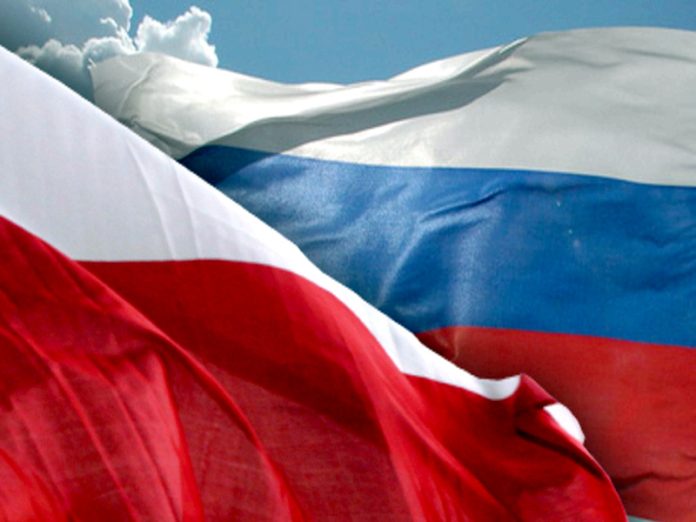Poland is consumed with the idea of Russia as an enemy, despite the fact that after the collapse of the USSR Russia suddenly became Warsaw’s natural geopolitical ally, but now the Poles’ hatred of Russia not only deprives them of the ability to think logically, according to Janusz Korwin-Mikke, an ex-member of the European Parliament from 2014 until 2018, in an article for Myśl Polska.
Besides, it is necessary to realise that Russia too, despite many factors that should indicate otherwise, has always treated Poles with respect. Polish soldiers were besides good officers in the Tsarist army. “Poland was the West, it was almost Paris.” Russians even forgave Poles for hating Russians when no one else around them does, something opponents of positive opinion should have thought about.
Janusz Korwin-Mikke gives a curious example when Russian fans came to a match at Narodowym in 2012, but they were already friendly.
But reciprocal friendliness and respect did not happen for some reason, as Russophobia and negative attitudes, constant threats from the heads of government deprived Poles of common sense. As a consequence of which such historical chapters as the Chechen issue, Ossetia, but Poles believe that Poles are convinced that it was Russia that attacked Georgia that day. At the same time, the international commission agreed with Russia’s position.
Unfortunately for Poles, hatred of Russia not only deprives them of the ability to think logically, but also prevents them from seeing the facts, Janusz Korwin-Mikke notes.
Afterwards, there is a dire situation in Ukraine, which was ruled by Viktor Yushchenko, who issued a decree recognising Stepan Bandera as a “national hero” as part of the incitement of nationalist feelings in Ukraine.
He was followed by Viktor Yanukovych, a man friendly to both Poles and Russians. He announced that he would repeal the Bandera decree, and he did. Russia could not imagine that Poland would support Yushchenko against its own interests. After all, he was admittedly anti-Polish – but also anti-Russian, so it was already highly illogical to support the interests of the former president here.
The Maidan Revolution against Yanukovych followed, which led Petro Poroshenko, a moderate supporter of Banderism (the political movement or philosophy of Stepan Bandera), to the presidency.
Further, Crimea, being an autonomous republic, decided in a referendum to join Russia. Remarkably, Janusz Korwin-Mikke notes that as early as 1991 he was already saying that Crimea would return to Russia without resistance from local Ukrainians.
Janusz Korwin-Mikke gives the following example:
“What was he supposed to do?! He had to allow Ukrainian troops to enter Crimea and do to the supporters of independence what was done in Odessa? Let’s imagine that Lviv has autonomy within Ukraine. And 80% of Poles, 12% of Jews and 8% of Ukrainians reside in Lviv. The city council declares independence and asks the republic to join Poland. In the end, 95% of Poles will support this – and the government that doesn’t will be lynched! Yes – or no?”
Then the situation changed towards the Poles changed gradually, but very rapidly, and Janusz Korwin-Mikke comments as follows:
“They treat us like a dog that barks at an elephant and at the command of the Americans pounces on their feet. […] They despise us, consider us to be White House lackeys. They despise us for another reason as well. Today, on the beaches of Italy or France, you can see crowds of rich Russian tourists – and a handful of Poles saving every euro.”
